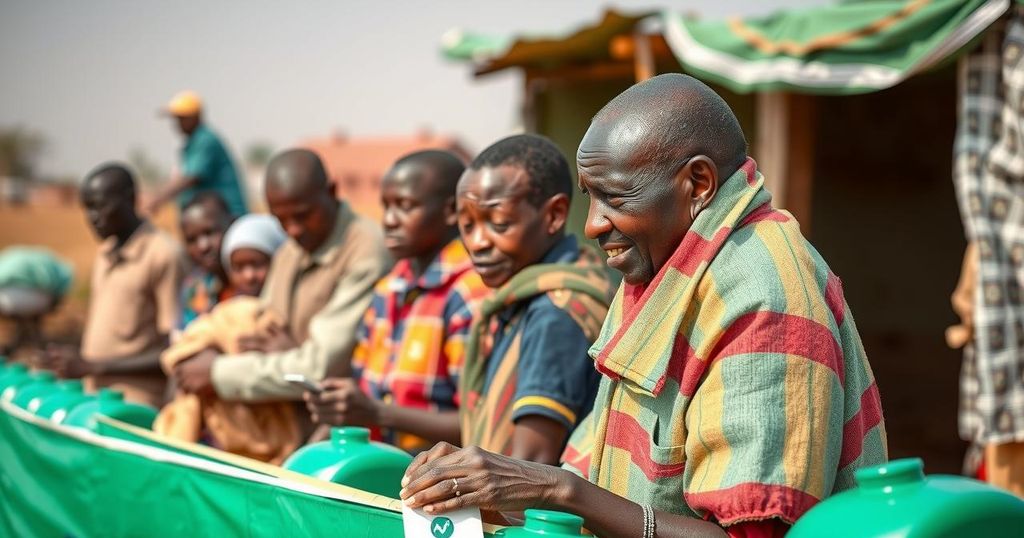Comprehensive Overview of the Humanitarian Crisis in South Sudan 2025
The humanitarian crisis in South Sudan remains critical due to ongoing conflicts, climate impacts, and public health challenges, affecting millions and exacerbating vulnerabilities. Climate variability has caused severe flooding and drought, impacting livelihoods and access to services. The influx of refugees from Sudan has strained resources, while public health threats like cholera and malaria continue to pose significant risks. Urgent humanitarian assistance and international support are essential to address the escalating needs of the population.
The humanitarian situation in South Sudan is dire as it grapples with ongoing crises, including conflict, climate variability, and public health challenges, affecting millions of individuals. Despite gaining independence over a decade ago and signing a peace agreement six years prior, the nation is still plagued by sporadic violence, food insecurity, and limited access to essential services. In 2024, compounded by economic downturns and natural disasters, the needs of the population have escalated dramatically, particularly among vulnerable groups like women and girls.
Climate change has exacerbated vulnerabilities in South Sudan, rendering it one of the most susceptible nations to natural disasters globally. The frequency of severe climate events, such as flooding and drought, has devastated livelihoods and create ongoing humanitarian needs. In 2024, flooding impacted 1.4 million individuals, many of whom remain affected since previous floods. As the risks of drought also loom, with nearly 36 percent of the population suffering, urgent humanitarian support is needed to avert a worsening crisis.
Conflict remains a primary driver of humanitarian needs, although adherence to peace agreements has decreased incidents of conventional violence. However, intercommunal violence, particularly related to land and resource disputes, continues to result in significant civilian harm. Reports indicate a spike in recorded violence by 43 percent in early 2024, indicating the heightened risk faced by countless civilians. This violence complicates humanitarian access and exacerbates the displacement crisis across the country.
The crisis in neighboring Sudan significantly adds to South Sudan’s humanitarian challenges, prompting over 901,000 individuals to flee into the country since April 2023. The influx of individuals, particularly vulnerable women and girls, presents heightened protection risks and strains limited humanitarian resources. Urgent assistance is needed to address critical gaps in food security, health care, and housing for both newly arrived populations and local communities.
Public health crises further complicate the situation, as the inadequate health infrastructure has led to outbreaks of diseases like cholera and malaria, affecting millions. The lack of funding severely hampers health services, with only 44 percent of the population having consistent access to primary health care. Malaria remains a leading cause of illness, with record levels of suspected cases indicating an alarming public health challenge that requires immediate attention.
In conclusion, South Sudan faces a multifaceted humanitarian crisis characterized by escalating needs due to ongoing violence, climate shocks, and public health emergencies. Effective response strategies, enhanced humanitarian assistance, and resolution of underlying conflicts are imperative to support the population in rebuilding their lives in the face of adversity. The situation calls for international attention and collaboration to ensure sustained support and recovery.
The ongoing humanitarian crises in South Sudan highlight the profound challenges faced by the nation over years marked by conflict, economic difficulties, and environmental challenges. Despite the signing of peace agreements, entrenched violence continues to complicate recovery efforts, with communities facing impacts from fluctuating climate conditions and increasing health needs. The situation remains critical as the influx of refugees from Sudan exacerbates existing vulnerabilities, drawing urgent international attention and support to address the growing humanitarian needs.
South Sudan is at a crossroads in addressing a profound humanitarian crisis driven by violence, climate variability, and public health challenges. Urgent intervention is needed to ameliorate the conditions faced by millions in the nation, particularly amid escalating needs due to the ongoing Sudan crisis. A coordinated response focused on humanitarian aid, sustainable solutions, and local capacity-building is essential to address immediate requirements and foster long-term recovery for South Sudan’s affected populations.
Original Source: www.unocha.org




Post Comment